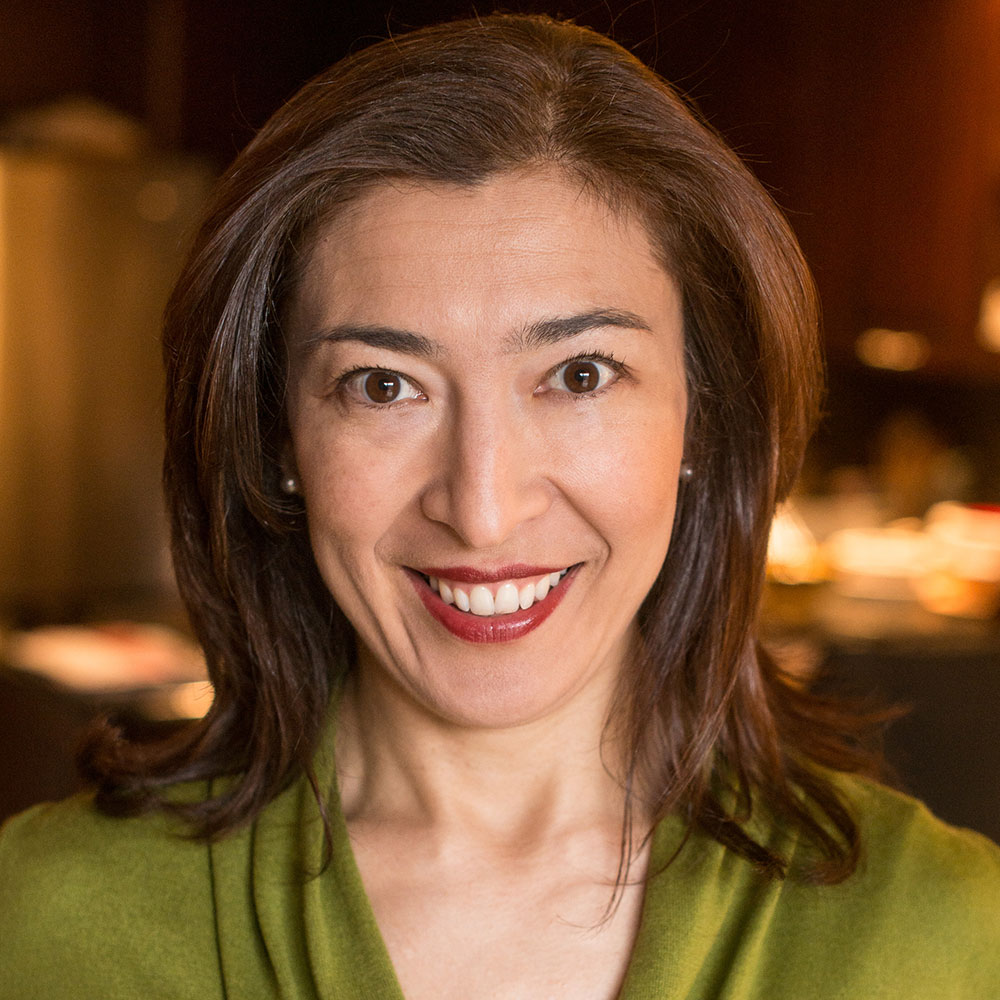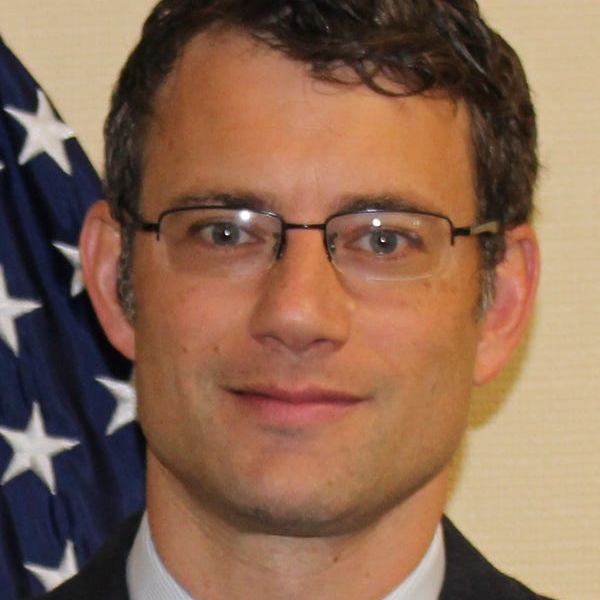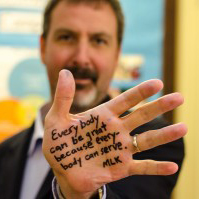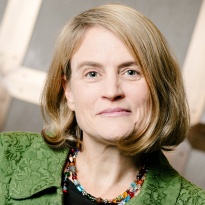Current Faculty
-
 Elmira BayrasliElmira Bayrasli is the author of From the Other Side of the World: Extraordinary Entrepreneurs, Unlikely Places, a book that looks at the rise of entrepreneurship globally.
Elmira BayrasliElmira Bayrasli is the author of From the Other Side of the World: Extraordinary Entrepreneurs, Unlikely Places, a book that looks at the rise of entrepreneurship globally.Elmira Bayrasli
She is also the cofounder of Foreign Policy Interrupted and a lecturer at New York University. She has lived in Sarajevo, Bosnia-Herzegovina, where she was the chief spokesperson for the OSCE Mission. From 1994–2000 she was presidential appointee at the State Department, working for Madeleine Albright and Richard Holbrooke, respectively. Elmira writes about foreign policy and global entrepreneurship and innovation. Her work has appeared in TechCrunch, Reuters, the Washington Post, Foreign Affairs, the Wall Street Journal, and the New York Times.
-
 Lionel BeehnerDr. Lionel Beehner is an assistant professor at the Modern War Institute at West Point and teaches courses on military innovation and research methods.
Lionel BeehnerDr. Lionel Beehner is an assistant professor at the Modern War Institute at West Point and teaches courses on military innovation and research methods.Lionel Beehner
He holds a PhD in political science at Yale University and is formerly a fellow at the Truman National Security Project, a member of USA Today’s board of contributors, and a term member with the Council on Foreign Relations, where from 2005–2007 he worked as a senior staff writer for its award-winning website, CFR.org. He holds an MA in international affairs from Columbia University. His research examines the transnational nature of conflict and combat, civil-military relations, and limited military interventions. His writing has appeared in Orbis, the Atlantic, Foreign Affairs, the New York Times, the Washington Post, the National Interest, and the New Republic, among other publications. He lives in Tarrytown, New York, with his wife, dog, and two children.
-
 Suzy HansenSuzy Hansen is an author and a contributing writer at the New York Times magazine. Since 2000, her work has appeared in a host of major national magazines, including the New Republic, Vogue, and National Geographic.
Suzy HansenSuzy Hansen is an author and a contributing writer at the New York Times magazine. Since 2000, her work has appeared in a host of major national magazines, including the New Republic, Vogue, and National Geographic.Suzy Hansen
Based in Turkey, she combined reportage, memoir, and history to write Notes on a Foreign Country: An American Abroad in a Post-American World, her award-winning non-fiction book about her first ten years in the Middle East that was a 2018 finalist for the Pulitzer Prize.
-
 Richard HarrillRichard Harrill is a lecturer in UNC-Chapel Hill's Public Policy Department. Richard is a nonprofit executive and education entrepreneur who most recently served as executive director of the Campus Y, UNC’s Center for Social Justice and Social Innovation.
Richard HarrillRichard Harrill is a lecturer in UNC-Chapel Hill's Public Policy Department. Richard is a nonprofit executive and education entrepreneur who most recently served as executive director of the Campus Y, UNC’s Center for Social Justice and Social Innovation.Richard Harrill
This is a center where he also served as an undergraduate copresident three decades before. Harrill holds a BA and JD from the University of North Carolina at Chapel Hill. Prior to returning to his alma mater, Harrill was the director for Europe of PILnet in Budapest, Hungary, where he and a small staff worked to establish a field office in Belgrade and to develop legal empowerment and legal education reform initiatives in the Balkans, as well as a global pro bono network providing assistance to human rights organizations around the world. From 2002–2007, Harrill was a visiting professor of political studies at Bard College in New York and served as the director of Bard Globalization and International Affairs (BGIA). He helped Bard to adapt this model to the Central European University (then in Budapest) and the University of the Witswatersrand in Johannesburg, South Africa. Harrill is the founder of Demokratikus Ifjusagert Alapitvany (DIA), a nongovernmental organization located in Budapest, Hungary, working for the past two decades to develop a public policy and programming infrastructure for youth service and civic engagement there. Harrill also has been a researcher on international youth policy at the Columbia University School of Social Work; senior fellow at the Bonner Foundation in Princeton, New Jersey; a consultant on youth policy to the Open Society Foundation, the Ford Foundation, and the International Foundation for Electoral Systems in Europe, the Balkans, the Caucasus Region, and Central Asia.
-
 Elisa SlatteryElisa Slattery was formerly senior program officer with the Open Society Foundations’ Women’s Rights Program, where she focuses on sexual and reproductive rights. Prior to joining Open Society, Elisa was a consulting researcher at Amnesty International, where she documented human rights violations stemming from Ireland’s highly restrictive abortion law.
Elisa SlatteryElisa Slattery was formerly senior program officer with the Open Society Foundations’ Women’s Rights Program, where she focuses on sexual and reproductive rights. Prior to joining Open Society, Elisa was a consulting researcher at Amnesty International, where she documented human rights violations stemming from Ireland’s highly restrictive abortion law.Elisa Slattery
She previously worked with the health law program of the International Development Law Organization in Rome. Elisa also served as the regional director for the Africa program at the Center for Reproductive Rights, where her work focused on promoting reproductive rights through national, regional, and international accountability mechanisms and addressing the intersection of HIV and reproductive rights. Elisa has worked as a consultant on workers’ rights issues in Kenya, conducted comparative legal and human rights research on the rights of incarcerated parents at the Brennan Center for Justice, and researched the impact of welfare reform on families with disabilities at the University of North Carolina’s Frank Porter Graham Child Development Center. Elisa holds a JD from Columbia Law School and a MA in history from Duke University.
Previous Faculty
Adam Shatz
Adam Shatz is a contributing editor at The London Review of Books and a contributor to The New York Times Magazine, The New York Review of Books, The New Yorker, and other publications. He has been a visiting professor at Bard College and New York University and a fellow at the Dorothy and Lewis B. Cullman Center for Writers and Scholars. Raised in Massachusetts, he studied history at Columbia University and has lived in New York City since 1990.
Anirudda Mitra
Aniruddha Mitra is Associate Professor of Economics at Bard College and has taught at Bard since 2012. Professor Mitra holds a M.A. from the Delhi School of Economics, Delhi University and an M.S. and Ph.D. form the University of Illinois at Urbana-Champaign. Professor Mitra's teaching and research interests include microeconomics; game theory; industrial organization; developmental economics; the economics of race, ethnicity, and gender; and the economics of migration. His research employs both theoretical and empirical methods to investigate the phenomena of discrimination, ethnic conflict, and the international migration of skilled labor. He has published in Applied Economics Letters, Eastern Economic Journal, Mathematical Social Sciences, and Economic Systems. He previously taught at Middlebury College and the University of Illinois at Urbana-Champaign.
Dr. Colleen Thouez
Colleen Thouez is the Director of the Welcoming and Inclusive Cities Division at the Open Society Foundations (OSF). Dr. Thouez served for 17 years at the United Nations (UN) in leadership positions including seven years heading the main training arm of the UN in New York, the UN Institute for Training and Research (UNITAR). Early in her career, she was appointed deputy director for policy of the first migration commission established by UN Secretary General Kofi Annan. She also served as advisor to the Secretary-General’s representative on migration, Sir Peter Sutherland, during his tenure. She led the movement to bolster cities’ influence in international policy-making on migration and refugee protection, founding the first inter-state mayors’ advocacy group in 2014. In 2018, with the Government of Switzerland and OSF, she created the Mayors Migration Council, an elite group of mayors leading efforts to grow city agency over transnational challenges. Her work with cities has featured recently in Reuters, Associated Press,TED Ideas, and WNYC. Dr. Thouez has taught migration and refugee policy in most corners of the globe, and advised the African Union, IOM, UNHCR, the World Bank, and the OSCE Stability Pact Task Force against Trafficking in Human Beings, among others.
Dr. Thouez is adjunct professorial lecturer at American University’s School of International Service, and lecturer at the University of Geneva. In 2017-2018, she was senior fellow at Columbia University’s Global Policy Initiative. Her most recent articles are Strengthening migration governance: the UN as “wingman”, Journal of Ethnic and Migration Studies (April 2018), and Cities as emergent international actors in the field of migration: evidence from the lead-up and adoption of the United Nations Global Compacts on Migration and Refugees, Global Governance: A Review of Multilateralism and International Organizations (forthcoming, 2020). Dr. Thouez gained her Ph.D. from the Fletcher School of Law and Diplomacy, Tufts University and her M.A. from McGill University. She is a Canadian citizen, married with three children.
Dr. Theresa P. Castillo
Dr. Theresa P. Castillo has been working globally in the fields of gender, social justice, human rights, and health equity for nearly 20 years. Her expertise includes cultural rights, sexual and reproductive health, violence prevention, and community development among vulnerable, marginalized populations. Currently, she serves as the Director of Women and Children’s Health Programs at HealthRight International. Working primarily in resource-poor settings in over 15 countries, Dr. Castillo has collaborated with various non-governmental organizations, UN agencies, and Ministries of Health to build local capacity and to strengthen public health systems. Her research has been dedicated to immigrant, refugee, and indigenous women’s health issues. A strong advocate of holistic concepts of health and integrated healing, Dr. Castillo has served on several health equity committees, led training workshops, and presented globally, with publications on gender integration and health disparities.
Dr. Castillo is on the Board of Directors for UMOJA Now and serves as a reviewer for the Journal of Health Disparities Research and Practice, the American Public Health Association, and the Asian Pacific Islander American Scholarship Fund. Early in her career, she served as a Maternal Health Specialist in Turkmenistan, Morocco, and Mali with the US Peace Corps. Dr. Castillo received her Bachelor’s degree in Psychology from University of Chicago and her Master’s and Doctoral Degree in Public Health Education from Columbia University.
Scott Rosenstein
Scott Rosenstein works at the intersection of research and practice. He is currently the Global Health Special Advisor at the Eurasia Group. Previously, he was the senior director for Strategy and Partnerships at Ikana Health Action Lab where he creates innovative and impactful public health tools and media. Before joining Ikana, Scott was the head of research at the Rockefeller Foundation’s 100 Resilient Cities initiative where he worked with cities to identify and develop integrated solutions to their complex challenges. Prior to that, Scott was the director of the Global Health Program at the Eurasia Group, a political risk consultancy in New York. In that position he worked with government and private sector clients interested in health emergencies and health system analysis. Scott was also a research associate in the global health program at the Council on Foreign Relations (CFR), where he focused on the intersection of emerging infectious diseases and national security. He is the co-founder of Restore Rockaway, a non-profit organization that provided grants to small businesses on the Rockaway Peninsula that were damaged during Hurricane Sandy. Scott’s field experience includes projects in Puerto Rico, Bosnia,, Nigeria, South Africa, Lebanon, Jordan, Senegal, Botswana, and El Salvador. He has written extensively on issues pertaining to global health, international development, urban planning, and political risk. He is a former term member at the Council on Foreign Relations and was on the Arthur Ross Book Award Nominating Committee. Scott earned his Bachelor of Arts degree from Amherst College and holds Master of Public Health and Master of International Relations degrees, both from Yale University.
Ambassador Frederic Hof
Ambassador Frederic C. Hof is the outgoing director of the Atlantic Council's Rafik Hariri Center for the Middle East. Hof has extensive experience in diplomacy, the military and the private sector. In 2012, Hof received the rank of ambassador in connection with his duties as special adviser to the Secretary of State on political transition in Syria.Hof was previously the special coordinator for regional affairs in the US Department of State's Office of the Special Envoy for Middle East Peace, where he advised Special Envoy George Mitchell on the full range of Arab-Israeli peace issues falling under his purview and focusing on Syria-Israel and Israel-Lebanon matters. He joined the State Department in 2009 after serving as the president and CEO of AALC, an international business consulting and project finance firm formerly known as Armitage Associates LC. A graduate of the Georgetown University School of Foreign Service, Hof began his professional career as an Army officer. He is a Vietnam veteran and served as a US Army Middle East Foreign Area Officer, studying Arabic at the Foreign Service Institute in Tunisia and receiving a master's degree from the Naval Postgraduate School. He served as US Army attaché in Beirut, Lebanon and later in the Office of the Secretary of Defense as director for Jordan, Lebanon, Syria, and Palestinian Affairs. He has written extensively on the Middle East and diplomacy. His awards include the Purple Heart, the Department of State Superior Honor Award, the Secretary of Defense Meritorious Civilian Service Medal, and the Defense Superior Service Medal.
Peter Rosenblum
Peter Rosenblum is Professor of International Law and Human Rights at Bard College. He hold an A.B., Columbia College; J.D., cum laude, Northwestern University Law School; LL.M., Columbia Law School; D.E.A. (Diplôme d’études approfondies), University of Paris I (Panthéon-Sorbonne).
Professor Rosenblum previously taught at Columbia Law School, where he was Lieff, Cabraser, Heimann & Bernstein Clinical Professor in Human Rights and faculty codirector of the Human Rights Institute. He has served as project director, associate director, and clinical director of the Harvard Law School Human Rights Program; human rights officer at the United Nations Human Rights Centre (now Office of the High Commissioner for Human Rights) in Geneva, where he led missions to Rwanda, South Africa, and Zaire; program director with the International Human Rights Law Group (now Global Rights) in Washington D.C.; consultant to Human Rights Watch/Africa Watch; and staff attorney for the Lawyers Committee for Human Rights (now Human Rights First). Publications include law review contributions, book chapters, reviews, newspaper opinion pieces, and numerous articles for Current History. Recent projects include field research on obligations and oversight in mining in South Africa and Peru and on tea plantations in India, and consultancies for projects in Democratic Republic of the Congo, Kashmir, Côte d’Ivoire, Chad, São Tomé e Príncipe, Vietnam, Rwanda, and Peru.
Giles Alston
Giles Alston is with Oxford Analytica, a UK-based political risk consultancy, and has worked in its New York office for more than a decade. He works mainly on country risk but contributes to the company's analytical training programs and occasionally writes on space. He previously taught in the Government Department at the University of Essex and has a D.Phil and an M.Phil from St Antony's College, Oxford.
Craig Charney
Craig Charney is a pollster and political scientist with more than two decades’ experience in over 45 countries. He is an expert in strategic communication, democracy promotion, and development evaluation. His clients include leaders in marketing, development, and security, from Samsung and Monsanto, to USAID and the World Bank, and the Defense Department and the International Peace Institute. He helped multinationals develop sales strategies for engineers in China and Vietnam and drivers in South Africa and India. His report on Muslim anti-Americanism for the Council on Foreign Relations helped shape public diplomacy in the second Bush and first Obama administrations. He was called to the White House to present his Afghanistan and Pakistan research in the Afghan strategy review.
Before creating Charney Research in 1997, Craig was Senior Analyst on President Clinton’s 1996 polling team. He also helped establish Nelson Mandela’s polling effort in South Africa’s first election in 1994.
Craig’s academic work focused on developing countries, particularly in Africa. He earned a Yale PhD in political science with a thesis on South Africa, a sociology of development diploma from the Sorbonne, where his thesis dealt with Senegal, and a politics MPhil at Oxford. He taught African politics at Yale and survey research at the New School. He has published scholarly articles on public opinion and African politics, four book-length studies based on polling in Asia, and numerous op-eds. He is a board member of New York’s American Marketing Association branch, belongs to the American Association for Public Opinion Research and the Society for International Development, and was named to USAID’s Advisory Committee on Voluntary Foreign Aid by Administrator Henrietta Fore.
Jamil Dakwar
Jamil Dakwar is the director of the American Civil Liberties Union's Human Rights Program (HRP) which is dedicated to holding the U.S. government accountable to its international human rights obligations and commitments. He leads a team of lawyers and advocates who use a human rights framework to complement existing ACLU legal and legislative advocacy primarily in the areas of counter-terrorism, racial justice, immigrants’ rights, women’s rights, and criminal and juvenile justice. HRP conducts human rights research, documentation and public education, as well as engages in litigation and advocacy before U.S. courts and international human rights bodies. Jamil serves as the ACLU main representative to the United Nations, and has testified before the Inter-American Commission on Human Rights, United Nations human rights bodies, and the Organization for Security and Co-Operation in Europe (OSCE), about human rights violations in the U.S.
Prior to joining the ACLU in 2004, Jamil worked at Human Rights Watch, where he conducted research, advocated, and published reports on issues of torture and detention in Egypt, Morocco, Israel, and the occupied Palestinian territory. Before coming to the United States, he was a senior attorney with Adalah, a leading human rights group in Israel, where he filed and argued human rights cases before Israeli courts and advocated before international forums. He is a graduate of Tel Aviv University and NYU School of Law.
Joel Rosenthal
Joel Rosenthal is President of Carnegie Council for Ethics in International Affairs. Under his leadership, the Council created the Carnegie Ethics Studio, which specializes in producing multimedia programs, and has set up the Global Ethics Network of Fellows that connects four continents and two dozen countries around the globe. Joel is also adjunct professor of Politics at New York University, and the author of numerous books and articles, including Righteous Realists and Ethics and International Affairs: A Reader. Joel holds degrees from Harvard University and Yale University.
Meline Toumani
Meline Toumani has worked as a journalist, editor and professor of journalism and creative writing in the U.S. and abroad. Her first book, There Was and There Was Not: A Journey Through Hate and Possibility in Turkey, Armenia, and Beyond, was a finalist for the National Book Critics Circle Award and the Dayton Literary Peace Prize. She has written about politics, ideas, books, and music for The New York Times, Harper's, The Nation, n+1, Salon, The Boston Globe, Newsday, GlobalPost, The National, and Travel + Leisure, among other publications. From 2002 to 2003 she was the coordinator of NYU's Russian American Journalism Institute in Rostov-on-Don, Russia, and in 2007 was a journalism fellow in residence at the Institute for Human Sciences in Vienna. From2007 to 2009 she lived and worked in Turkey as a foreign reporter, and has also filed stories from Armenia and Georgia. Currently, she teaches graduate students in the GoucherCollege low-residency MFA program in creative nonfiction. She has been an invited speaker in academic and private settings anda commentator on radio and television stations in several countries. In addition to her freelance work, she has held staff editorial positions at The New York Times Magazine, KQED Public Media, and GreatSchools. Toumani has a bachelor's degree in English and public policy from U.C. Berkeley, and a master's degree in journalism from the Cultural Reporting and Criticism Program at NYU.
Chris McIntosh
Christopher McIntosh began teaching at Bard in 2010. He received his Ph.D. in 2013 from The University of Chicago, specializing in international relations and has an M.A. in Security Studies from Georgetown. His principal research and teaching interests revolve around international relations, security studies, temporality, and post-structural theory. His primary research focuses on how the concept of war in contemporary international politics is constituted by sovereignty and the implications it has for the practice of political violence. This research builds on his dissertation, “What Makes a War, a War? Sovereignty, War, and the Subject of International Politics”. At Bard he teaches courses on global ethics, sovereignty and war, terrorism, security, and international relations. Prior to Bard, Professor McIntosh has worked at CSIS and the Office of Naval Intelligence.
Tom Parker
Tom Parker is currently the team leader of a European Union project to improve cooperation within the Iraqi intelligence community in the fight against ISIS. He was formerly a Counter-Terrorism Strategist at the United Nations Counter-Terrorism Center (UNCCT) focused on Central and Southern Africa, and was one of the principal authors of the UN’s Preventing Violent Extremism Plan of Action. Tom has previously served as the Policy Director for Terrorism, Counterterrorism and Human Rights for Amnesty International USA, as Head of the Coalition Provisional Authority’s Crimes against Humanity Investigation Unit, as a war crimes investigator with the United Nations International Criminal Tribunal for the former Yugoslavia (ICTY), and as an Intelligence Officer in the British Security Service (MI5). Tom has taught undergraduate and postgraduate courses on international terrorism in Yale University’s Residential College Seminar Program, Bard College’s Globalization and International Affairs Program, and the National Defense University at Fort Bragg.
Ilan Greenberg
Ilan Greenberg is a journalist who has reported across the globe for publications including The New York Times Magazine, The New Yorker, The Wall Street Journal, Vanity Fair, Foreign Policy, and Slate. He founded the crisis reporting platform Coda, which adheres to a unique approach of following a single topic throughout its unfolding. He was a visiting public policy scholar at The Woodrow Wilson International Center for Scholars in Washington DC and has received a Knight International Journalism Fellowship, Asia Society Fellowship, and the 2008 Lange-Taylor Prize for his work.
Michael Moran
Michael Moran is the Founder and CEO of Tranformative.io. A foreign policy analyst, author and geo-strategist for investment banks and other institutions, he concentrates on macro risk and US energy, foreign policy and global economic matters. Before joining Control Risks, Michael served as head of thought leadership at the investment bank Renaissance Capital. He previously served as chief geo-strategist for Roubini Global Economics and helped launch the company’s product offering and digital strategy. Michael also spent four years at the Council on Foreign Relations, where he launched CFR’s Crisis Guides series, which garnered three Emmy awards and numerous other honours. He was also a senior correspondent, analyst, and editor for MSNBC.com, the BBC World Service, and Radio Free Europe/Radio Liberty, respectively.
Walter Russell Mead
Walter Russell Mead is the James Clarke Chace Professor of Foreign Affairs and Humanities at Bard College. He serves as Editor-at-Large of The American Interest, and frequently writes articles, book reviews, and op-ed pieces for the Wall Street Journal, Foreign Affairs, The American Interest, and other magazines and newspapers. Mr. Mead is the author of: Special Providence: American Foreign Policy and How It Changed the World (2001; winner of the Lionel Gelber Prize and nominated for the 2002 Arthur Ross Book Award); God and Gold: Britain, America, and the Making of the Modern World (2008); and Power, Terror, Peace, and War: America's Grand Strategy in a World at Risk (2004). He received his B.A. from Yale University.
Melina Lito
Melina Lito is an international law attorney with experience advising on human rights and humanitarian law and international security. She is the founder of a boutique international law advisory firm. Ms. Lito has worked for various non-governmental organizations at the UN where she has engaged on a range of peace and security issues including but not limited to disarmament, human rights, genocide prevention, rule of law, anti-trafficking and global migration issues. Ms. Lito has published on the implementation of UN Security Council resolutions, sexual exploitation and abuse, responsibility to protect, and the legal rights of migrants in land and sea borders. Ms. Lito's field experience includes providing legal assistance on immigration matters to vulnerable communities in humanitarian settings. Ms. Lito is a graduate of Wayne State University Law School, where she served on the Law Review Executive Board, as President of the International Law Student Association (ILSA) and as Senior Editor of the Michigan International Lawyer (a publication of the Michigan State Bar). Ms. Lito has a BA in International Relations with a Muslim Studies Specialization, from James Madison College, Michigan State University.
Stephanie Savell
Stephanie Savell is Co-Director of Brown University’s Costs of War Project, informing public debate on the post-9/11 “war on terror.” An anthropologist, she has conducted research on security and civic engagement in the U.S. and in Brazil. Her publications include the co-authored The Civic Imagination: Making a Difference in American Political Life (Routledge, 2014). Stephanie has worked for several nonprofit organizations, including Ashoka: Innovators for the Public, and taught for the Bard Prison Initiative. She received her PhD from Brown University.
James Ketterer
James Ketterer is Dean of the School of Continuing Education. He previously served as Dean of International Studies at Bard College and Academic Director of the Bard Globalization and International Affairs program and he taught in Bard’s Political Studies and Global and International Studies programs. Ketterer previously served as Egypt Country Director for AMIDEAST. Prior to that, he was Vice-Chancellor for Policy and Planning and Deputy Provost at the State University of New York (SUNY). At SUNY, he also was the director of the Center for International Development and program officer at the Center for Legislative Development. In government, he served on the staff of the New York Commission on Higher Education, the National Security Council staff at the White House and as a policy analyst at the New York State Senate. He worked on elections for the United Nations, the African-American Institute and the Organization for Security and Cooperation in Europe and has carried out consultancies for USAID in the Middle East, Africa and Asia. He was a Boren Fellow in Morocco and a Rotary Ambassadorial Scholar in Tunisia. He serves on the board of the Swedish Program at the Stockholm School of Economics, the organizing committee of the 2020 Transatlantic Dialogue at the University of Luxembourg and as a Senior Fellow at the Bard Center for Civic Engagement.
Scott Silverstone
Scott Silverstone is a Professor of International Relations at the United States Military Academy at West Point. He has previously taught at the University of Pennsylvania and Williams College. He has published several books on defence politics and international security. Scott was also a naval flight officer in the US Navy, and worked as a crisis staff officer at the Pentagon. He is currently working on a book about Germany’s preventive war dilemma as a Carnegie Fellow at the New America Foundation. Scott holds degrees from the University of New Hampshire and the University of Pennsylvania.
Kate Bourne
Kate Bourne is a professor at New York University’s Robert F. Wagner Graduate School of Public Service. She also works as an independent consultant in international health. As a consultant, she focuses on human rights, gender, reproductive and sexual health, as well as HIV and AIDS. Kate has also served as Vice President for the International Women’s Health Coalition and the International AIDS Vaccine Initiative, and holds degrees from the University of Colorado and the University of Texas.
James Creighton
James Creighton is a Distinguished Fellow at the EastWest Institute. He served as a commissioned officer in the United States Army for 30 years, holding staff and command positions, most recently serving a Commander of the Combined Team in Uruzgan, Afghanistan. James is also a lifetime member of the Council on Foreign Relations. He holds degrees from the United States Military Academy, Central Michigan University, the Marine Corps University, and the National Defense University.
Lynda Hammes
Lynda Hammes is the publisher of Foreign Affairs magazine, published by the Council on Foreign Relations. She has led the magazine to its highest paid readership in history, working on all aspects of strategy and audience development. Hammes has worked as a journalist and as an adjunct professor of media studies and journalism at Bard College and New York University.




